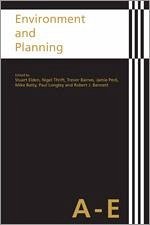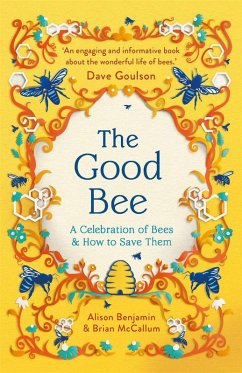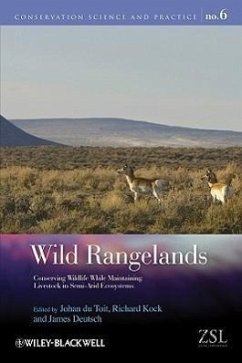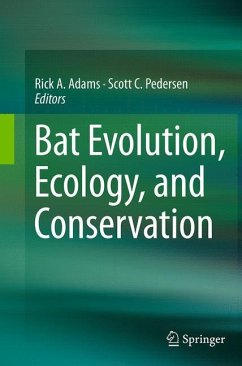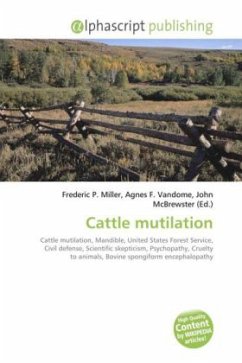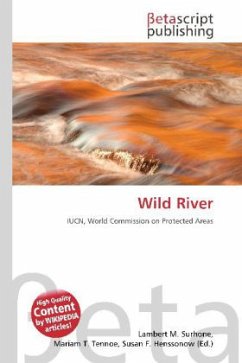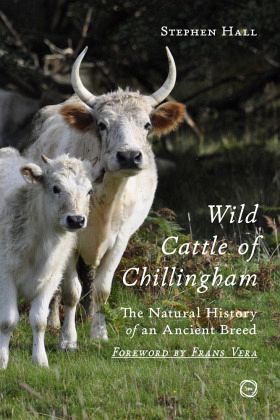
Wild Cattle of Chillingham
The Natural History of an Ancient Breed
Versandkostenfrei!
Erscheint vorauss. September 2025
37,99 €
inkl. MwSt.
Weitere Ausgaben:

PAYBACK Punkte
19 °P sammeln!
The Wild Cattle of Chillingham are one of the most significant icons of British natural history and this book is a much needed definitive resource. Stephen Hall adopts a novel approach by placing original research in an up-to-date multidisciplinary context. The Chillingham herd are the only accessible cattle worldwide that live under conditions of minimal human interference, and as such they are uniquely placed to provide insights into many aspects of the life of cattle as a species rather than as a component of livestock systems.Attitudes towards cattle generally are in a state of flux becaus...
The Wild Cattle of Chillingham are one of the most significant icons of British natural history and this book is a much needed definitive resource. Stephen Hall adopts a novel approach by placing original research in an up-to-date multidisciplinary context. The Chillingham herd are the only accessible cattle worldwide that live under conditions of minimal human interference, and as such they are uniquely placed to provide insights into many aspects of the life of cattle as a species rather than as a component of livestock systems.
Attitudes towards cattle generally are in a state of flux because of their roles in both contributing to and potentially mitigating global climate warming. A better understanding of the Chillingham herd in their ancient landscape will contribute to equitable and sustainable policies in relation to global cattle husbandry.
The biology of the herd and of its habitat is considered from the viewpoints of plant and animal ecology, animal behaviour, genetics and reproductive physiology, and the insights for archaeology, human geography, and cultural studies are demonstrated.
The text is accessible to advanced undergraduate students and specialist research workers in all of these disciplines. Practitioners and policy makers in rural affairs, especially in such matters as rewilding, maintenance of traditional and high-nature-value landscapes, and conservation of animal genetic resources will also benefit.
Attitudes towards cattle generally are in a state of flux because of their roles in both contributing to and potentially mitigating global climate warming. A better understanding of the Chillingham herd in their ancient landscape will contribute to equitable and sustainable policies in relation to global cattle husbandry.
The biology of the herd and of its habitat is considered from the viewpoints of plant and animal ecology, animal behaviour, genetics and reproductive physiology, and the insights for archaeology, human geography, and cultural studies are demonstrated.
The text is accessible to advanced undergraduate students and specialist research workers in all of these disciplines. Practitioners and policy makers in rural affairs, especially in such matters as rewilding, maintenance of traditional and high-nature-value landscapes, and conservation of animal genetic resources will also benefit.




